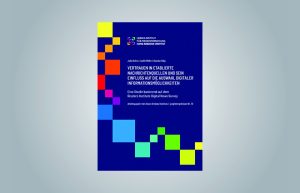In Germany, trust in established news sources can best be explained by age: Older internet users tend to place more trust in the news than younger ones. There are also differences regarding political orientation. Respondents who classify their political orientation as right-wing or conservative are generally more skeptical of the news than those who classify themselves on the extreme left or in the political center. In addition, a higher level of formal education tends to go hand in hand with greater trust in the news. As expected, those who use specific news brands also trust them, but not unconditionally. Those who have not used news within a week or have only received it on social media have the least trust.
 These are the findings of a special analysis of data from the Reuters Institute Digital News Survey 2023 conducted by Julia Behre, Judith Möller and Sascha Hölig from the Leibniz Institute for Media Research in Hamburg.
These are the findings of a special analysis of data from the Reuters Institute Digital News Survey 2023 conducted by Julia Behre, Judith Möller and Sascha Hölig from the Leibniz Institute for Media Research in Hamburg.
Working paper available for download (pdf)
Behre, Julia; Möller, Judith; Hölig, Sascha (2024): Vertrauen in etablierte Nachrichtenquellen. Eine Studie basierend auf dem Reuters Institute Digital News Survey [Trust in Established News Sources. A Study Based on the Reuters Institute Digital News Survey]. Hamburg: Verlag Hans-Bredow-Institut, March 2024 (Working Papers of the Hans-Bredow-Institut | Project Results No. 71), DOI: https://doi.org/10.21241/ssoar.93328, ISBN 978-3-87296-185-3.
Press Release “People Who Use Media Also Trust Them – But Not Unconditionally” from 26 March 2024.

